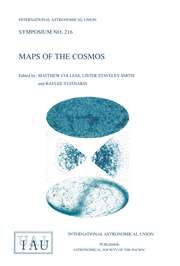Article contents
Correlations Between BCD Parameters of the Continuous Spectrum and the Balmer Decrement of Be Stars
Published online by Cambridge University Press: 14 August 2015
Extract
One of the greatest difficulties in interpreting the continuous spectrum of Be stars is to separate the effects of interstellar reddening from the effects due to the presence of the envelope. This difficulty has been avoided in the two types of correlations considered here. In the first one, parameters not affected by interstellar reddening are used (the Balmer jump and the Balmer decrement). In the second one, the parameters used can be affected by the interstellar extinction but comparisons are made only between values which correspond to the same (but variable) Be star, at different epochs, with different amounts of emission.
- Type
- I. Photometry
- Information
- Copyright
- Copyright © Reidel 1982
References
- 4
- Cited by


